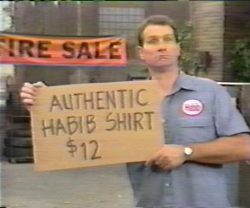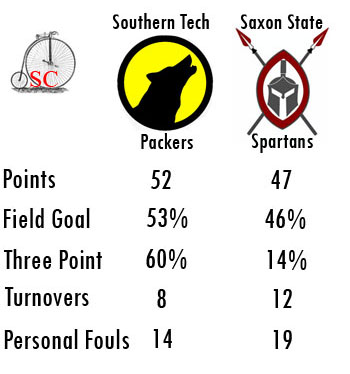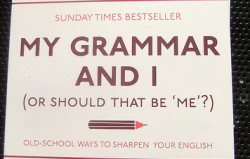Category Archives: Coffeehouse
There was a discussion on twitter recently between Lyman Stone and Noah Smith about kindness and mutual respect (or something alone those. Smith said nobody does it better than Japan. Stone said the South, to which Smith said that doesn’t apply racism. Stone asked if Smith really wanted to go that route with Japan in the conversation. I cannot link to the thread because Smith deleted his part of it.
Anyway, I thought of that when I watched this:
Of course, that’s China instead of Japan, but they all look alike, right? Hur hur. More seriously, it’s a good reminder that even in the age of Trump, we regard racism on a curve and in a rather comparative manner.
Interestingly enough, that commercial appears to be ripped off an Italian commercial, which goes in the opposite direction:
Though one is from Asia, and the other from Europe, they are both in-keeping with racial stereotypes we have over here. The latter cuts more viscerally into racial fears within HBD communities within the US, while the Chinese one makes little sense by those standards. The former is in-keeping with more traditional racist stereotypes, though with Asian as the “default race” instead of white.
If you’re interested in diving into the fever swamp, the second video comes from Uncle Steve’s blog. You can also read the YouTube comments, which are what they always are.
1/ my tardy, obligatory take on kindergarten Thermidor – this is about updating the criteria for counter-revolutionaries, not free speech
— Jonathan Zhou (@Zhou___) May 23, 2016
2/ I see some on the centre-right express sympathy for our petit Robespierre – he would guillotine you in an instant, why bother
— Jonathan Zhou (@Zhou___) May 23, 2016
3/ the reigning purge-manuals specify that you can only harass and defame people for being sexist or racist, not classist
— Jonathan Zhou (@Zhou___) May 23, 2016
4/ they simply want to add "classist" to that list, perhaps even on top of it https://t.co/MINBO8Vb6z
— Jonathan Zhou (@Zhou___) May 23, 2016
In recent years, the term “neckbeard” has become perjorative short-hand for “undesirable dude.” Not just undesirable in the sexual sense, but in the social as well. When Ricochet’s Jon Gabriel tweeted about seeing a bunch of neckbeards at a comic book shop, it was pretty much assumed what he meant. Male losers. It relates, directly or indirectly, to ungroomed hair growth in the neck area. We can infer from that that this is not someone who takes care of their appearance.
Why the neckbeard? Mostly the process of elimination. Things like traditional stubble, messy hair, and so on have become intentional adornments. Other things, such as obesity or general ugliness, it’s considered untoward to comment on. A neckbeard, though? That’s a deliberate choice. Losing weight is hard, and most of us know at least someone that has struggled with it. But shaving your neck isn’t. If you can’t even do that, then you obviously don’t care about your appearance and contempt cast your way is therefore to some degree earned. So we can, with that one combined word, describe someone’s attitude towards their own appearance. Very handy.
I’ve hated neckbeards since before hating neckbeards was cool. I have a very fertile neck, as far as that goes, and I therefore shave it at every opportunity. Regular stubble can be an affectation, but neck hair almost never looks good (and especially not on someone like me that has a thick neck even when I’m thin).
Sometimes, though, a neckbeard isn’t really a neckbeard. Sometimes it’s okay. Sometimes it goes completely unnoticed. When does it go unnoticed? When it’s on this guy.
Thats Stephen Amell, who plays Oliver Queen, the title character on the TV show Arrow. He doesnt shave his neck, but people dont seem to especially notice. Ive had the conversation on more than one occasion. A friend commented how much she likes Oliver Queens beard. I ask whether she means the Van Dyke from the comic or the neckbeard from the TV show. Confusion follows because what neckbeard?
Now, granted, Amell doesnt have a full neckbeard. But like me he has a fertile neck, and in any given scene the hair on his neck will match the hair on his face, and neither are usually clean. He does the stubble thing, which is hip. He also does the neckbeard thing, which really only works because he looks like Stephen Amell. I suspect that, on the face of a perhaps chubby comic book nerd, thats what Gabriel was looking at in the comic book shop. In short, if you look like that fellow on the left, you can’t pull it off. If you look like the fellow to the right, you can:


One of the reasons that Taidengu is more likely to be criticized than Amell is because it’s more noticeable on account of their respective frames. The smaller your neck, the less noticeable it genuinely is. Which is the case for a lot of things. Though Elizabeth Piccuito informs me that this is no longer the case it once was, thanks to capitalism, it seems that fashion trends for women are geared very heavily towards those that have the best figures. Which is to say trends seem to go specifically towards those outfits that compliment the fewest number of frames. While that’s commercial and this is physical, it is nonetheless a noticeable truth that if you look good in a traditional way you can get away with a lot more than if you’re on the fringe.
This came to mind a day later with Nob Akimoto commented that being able to dress down is a form of privilege. It was, I believe, in reference to Bernie Sanders and the White House Correspondence Dinner. I believe that’s actually quite right, and for a lot of the same reasons that Stephen Amell doesn’t need to worry about shaving the way us mere mortals do.
Amell can afford people criticizing his neck – if they even notice – because he is so otherwise good looking. Someone like Bernie Sanders can get away with acting low-class because he is a very important person. It’s just an affectation! It’s just Bernie being a man of the people! Which is all fine and good, but these are only assumptions we make because we know that he could wear a tux and doesn’t. Someone else who doesn’t wear a tux we might make other, less populist, assumptions about.
Sheila Tone made a similar observation about being able to dress her oldest child (then her only child) in ragmuffin attire. She said it years ago, on a site that has since been taken down, but it’s stuck with me all of this time. I can dress Lain however I want. I can get clothes from goodwill. If she is so inclined, I can let her go out in her underwear. No one will make assumptions about us. No one will call the CPS worried that we can’t afford decent clothes. People might look at her and determine that we are bad parents, I guess, but not in any threatening way. We can chalk it up to eccentricity.
So what does all of this mean? Is Stephen Amell required to shave like us mere mortals? Does Bernie Sanders have to wear a tux? Or do we stop criticizing everyone else? Is that desirable or even possible while trying to maintain cultural standards? Are cultural standards themselves the enemy? Is it desirable or possible to live without them?
 When I was young and single, I was a sucker for work shirts. You know, Habib shirts, like from on Married With Children. I never found a true Habib shirt, sadly, but I had several with a lot of names, some Anglo and some not. You could get three for five dollars. For a college kid on a limited budget, that was really cool. They were certainly cooler than “1992 Charity Fun Run” shirts for the same price. I can lean on my comparatively limited funds and being truly frugal at the time. I would feel extremely self-conscious wearing them now, though, and not without reason.
When I was young and single, I was a sucker for work shirts. You know, Habib shirts, like from on Married With Children. I never found a true Habib shirt, sadly, but I had several with a lot of names, some Anglo and some not. You could get three for five dollars. For a college kid on a limited budget, that was really cool. They were certainly cooler than “1992 Charity Fun Run” shirts for the same price. I can lean on my comparatively limited funds and being truly frugal at the time. I would feel extremely self-conscious wearing them now, though, and not without reason.
There are no broad answers, of course. It goes to the question of the value of social norms, for which everyone has a different answer both broadly and in individual instances as well. When Bernie refuses to wear the tux, is he running interference for those that can’t or is he inadvertently mocking them for a judgment from which he is comparatively immune? Is Stephen Amell being “normal” with his lazy shaving habits, or is he doing with his face what an attractive woman might do with a particular bathing suit: Only I can pull this off. What is the intention, and what is the reception? To what extent do they even think about it? To what extent is it their responsibility? And to what extent is all of this just urinating into the tornado of the inequities of life and society?
Taidengu Photo by Thaadd 
Stephen Amell Photo by Gage Skidmore 
I come up with four. Dave Hackensack says three. Answers seem to mostly range between two and four.
Whatcha got?
In response to a hate crime, a German soccer team digitally altered a photo of their team to make the players appear black to “make it clear that [players who were victims of hateful acts] are an inherent part of our team, and not a minority on whom you can use violence to let off your personal frustration.” Which naturally lead to some concern:
Is this ever a good idea? After two of their teammates were victimized by what the club called a racist attack, members of Deinster SV posted a photo showing their faces digitally altered to make them appear black skinned. The highly questionable bit of photoshopping actually came from a good place – their teammates are Sudanese refugees and the players wrote on their Facebook page:
“Violence against refugees is pathetic. Emad and Amar, you are one of us just like everyone else and we’re happy you are with us.”
In fairness to the players, their post has more than 17,000 responses on Facebook, almost all of which are positive. But a few commenters couldn’t help but note that even this well-intentioned gesture hits a little too close to home for some.
The author asks “Is this ever a good idea?”
Well, in the US it’s certainly not. Not ever. The thing is, though, that this wasn’t the US. We were not the target audience. The African-American population here that understandably objects to blackface was not the audience here. Whether they should have done it, or not, is not especially our business. Or, more precisely, it is not up to a German soccer team to conform to our sensibilities. If the applicable population in Germany feels the same way, then the team ought to apologize. If a bunch of people half the world away, who were neither the targets of derision or sympathy object, it’s not really our business any more than a swastika in India.
We have a very specific history with blackface, as outlined in the article. Though I sort of take exception to the example of Aloha (wherein, from what I understand, looking white was an intended part of the character), we have a history of minstrels and mockery. Does Germany have that history? Or is the blackface more associated with the Dutch holiday? The article simply doesn’t say, and we’re not really qualified to fill in all of the blankis.
There are other cases where maybe we can get involved, but only if we own some ownership over the situation. Telling Southern Italy “Hey, it’s actually not cool to use the Confederate Flag like that” is somewhere between entirely appropriate or understandable. It’s our symbol. Even then, there should be a degree of mutual understanding that it doesn’t quite mean to them what it means to us. But somebody’s gotta tell them, if they don’t know. If they do? Well, there’s global multiculturalism for you, I guess.
They sort of admit the context angle at the end, but nonetheless close with “our cultural referees to pull out a red card in protest” as though it’s our business to be referees in this particular case.
I’ve been listening to music lately while driving (instead of audiobooks). Somehow my player ended up without a CD and so I grabbed the first one out of my case. It’s an independent artist from Deltona who you’ve never heard of and, as far as I know, stopped making music years ago. His band at the time followed a pattern I’d seen many times: A little rocky at first, getting progressively better, then right when they’ve gotten really good and people see me singing along with the lyrics are asking me questions about the band… they break up and go their separate ways. He rebounded a couple times with other bands, but never really recaptured the magic.
Part of what made me think that Todd might “make it” is that he is a really good looking guy. I mean really, really good looking guy. He started off singing country and my then-girlfriend’s friends would come to shows with us even if they didn’t like country music because they liked to watch him sing. His looks would stand out in a Hollywood film. He was a good singer, a better-than-decent songwriter, and an improving performer, but all he really had to do for the female contingent of his fan-base was stand there and smile winsomely.
One of the themes of his music has to do with his struggles with the ladies. More specifically, the lack of leverage he often feels he has in his relationships, former relationships, and near relationships. It’s not an uncommon theme, but it’s a weird theme coming from him. How can a guy like that have difficulty with the ladies? Which is not entirely fair, because the better looking a man or woman is, the higher the standards they have for a potential partner, and the less leverage their looks buy them. It’s also the case, if his music is any indication, that he may not be the best boyfriend. One of his woe-is-me songs involved infidelity.
The other thought I had was that he could have difficulty with the ladies despite his looks and charisma because he’s not exactly the sharpest tool in the shed.
Then I realized that wasn’t true at all. At least, I had no particular reason to believe it’s true. He had a college degree and his day job at the time was as a mortgage accountant. I don’t know that such a job requires genius, but it almost certainly requires more than being a dull tool in any objective sense. He may be dimmer than the average mortgage accountant, or dimmer than the average college graduate (though I have no particular reason to believe that either is true), but his general level of intelligence is likely to be no less than average and probably higher.
Why did I think otherwise? The comparative lack of depth of his music? Maybe. His friendly manner making him seem dim? Or do I have a bias against good looking men? The latter is a female stereotype, but that’s only because it’s under-observed in men and not because it’s absent. I’ve found myself on at least a couple of occasions coming to a quick, and wrong, conclusion about attractive guys.
It’s also likely the case that my estimate of average is revised upwards by virtue of the fact that most of the people that I communicate with non-superficially most of the time are of higher intelligence. On Ordinary Times, at Hit Coffee, and in meatworld. Throw in Facebook and Twitter, while we’re at it. This says nothing special about myself and more about how we tend to organize along these lines. It correllates genetically with our families, our jobs, and society more generally.
This leads to some skewed perceptions generally. You see this especially in the political world, where obviously intelligent people are dismissed as unintelligent when that’s almost certainly not the case. The dismissal can come from partisan instincts: This person takes political stands I believe are stupid so they must be stupid. You see this applied in some of the oddest places to obviously intelligent individuals from Barack Obama to Ted Cruz.
Beyond that, though, it tends to attract to people who display a seeming lack of intellectual curiosity, such as George W Bush and Sarah Palin. There is no real reason to believe that GWB is not intelligent. It was taken for granted by some that between Bush and Kerry it was obvious the latter had an intellect the former lacked, but there was never much basis for believing that and there was a little bit of basis for believing it was not the case. Kerry got points for his affectations, while Bush lost them for the same reason as well as the “lack of intellectual curiosity” thing. The latter of which can be associated with intelligence, but it’s rather tricky to do so.
Then there’s Sarah Palin. Good ole’ Sarah Palin. Not only was she tagged dumb, but this view has largely been considered vindicated by almost all of the left, most of the center, and a good chunk of the right. Except that it probably isn’t so. The assessment of Palin’s intelligence is probably informed most of all by her surroundings. Specifically, that she is surrounded by people who are more intelligent than she is. Her IQ is probably about average. It just looks low by comparison. Her failures are the product of being in an environment where average simply won’t cut it. And so she is considered dumb. It’s no mistake that she managed Wasilla and Alaska with a degree of adeptness, but then flopped so badly at the national level. The jobs got harder, and she didn’t have the reserves. Most people would probably handle it worse than she did, as hard as that may be to imagine.
The same could be said for Bush, if we consider him a failure: The presidency requires unusually high intelligence merely to function competently. If it’s a matter of brainpower, though, it seems likely that Kerry would have been just as unsuccessful. Or alternately Bush may have had the intelligence for the job but not the temperament. Or beyond that, the biggest problem was just that he got some bad ideas and ran with them, which is not as good an indicator of a useful definition of intelligence as we might think. A lot of smart people devote themselves to bad ideas – seemingly dumb ones – and to believe otherwise is to be pretty ideologically blinkered (as evidenced by attempts to portray Ben Carson as anything other than exceptionally intelligent).
In all likelihood, most of us have run into this in the office place. Early in the days of Hit Coffee I wrote about a guy named Charlie Belcher. The key primer on him was lost to the sands of WordPress, but the long and short of it is that he was worse than deadweight. Not only did he not actively contribute to the XML programming team, but his presence cost resources even if he’d been there for free because the rest of us had to devote extraordinary amounts of time trying to explain over and over again how to do the job and correcting his innumerable failures. He -along with another coworker named Edgar who was also worse than deadweight – personally did a lot to convince me of the limited potential being able to bring the masses into the knowledge economy. While Edgar’s intelligence very likely was below average, Charlie’s was probably about average. He was just working in a job where that wasn’t enough. Both were very motivated to do well, both had every opportunity to succeed, and both washed out because neither of them could.
PS This post is about intelligence. Not about the comparative failings and virtues of the Republican and Democratic Party. Please comment accordingly.
 KELLY: Welcome to the Ordinary Sports Channel’s half-time show. We’re here in the first round of the Eastern Metro Conference tournament and it’s been a surprisingly good game!
KELLY: Welcome to the Ordinary Sports Channel’s half-time show. We’re here in the first round of the Eastern Metro Conference tournament and it’s been a surprisingly good game!
BLUE: That’s right, Tod. Southern Tech came into this game with a decided advantage considering all of the injuries that Saxon State has had all year, but they’re really hanging in there! Down by five in a very high scoring game.
KELLY: Yes. The Packers obviously have the advantage here, but the Spartans showing real grit.
TRUMAN: Are we done with this yet?
KELLY: I’m sorry? Done with what?
TRUMAN: Done pretending this is a {air quotes} “competitive” game between two {air quotes} “good teams”? (more…)
1/Younger Millennials – people now 23 through 29 – don't really understand the 1990s, and how amazing they were. So I want to explain.
— Noah Smith (@Noahpinion) January 29, 2016
2/Yes, in the 90s we had no cell phones, gay marriage, digital cameras, social networks, or black president. What we had were expectations.
— Noah Smith (@Noahpinion) January 29, 2016
3/Crazy as this sounds, I grew up thinking that a nuclear holocaust was inevitable. In August 1991 that suddenly changed when the USSR fell.
— Noah Smith (@Noahpinion) January 29, 2016
4/Suddenly *we would live on*. And a wave of freedom spread around the globe. It really was the End of History.
— Noah Smith (@Noahpinion) January 29, 2016
5/Then in the mid-90s, the web browser came into being. And the whole world suddenly opened up – like discovering a fourth dimension.
— Noah Smith (@Noahpinion) January 29, 2016
6/Before 1994, if you wanted to know something, you had to ask someone, or look in a *paper encyclopedia*. Can you imagine that?
— Noah Smith (@Noahpinion) January 29, 2016
7/Now with a few button presses you could chat with millions of strangers, all over the world. That changed in 1 or 2 years!!
— Noah Smith (@Noahpinion) January 29, 2016
8/At the same time, society changed rapidly. My mom was a housewife in the 80s. By 2000, women were executives, managers, lawyers, doctors!
— Noah Smith (@Noahpinion) January 29, 2016
9/The 80s were the peak of the Great Crime Wave. Cities were no-go zones. My year had the highest teen crime rate ever recorded.
— Noah Smith (@Noahpinion) January 29, 2016
10/Then suddenly in half a decade, the siege lifted. Crime fell by more than half. You could live in cities again.
— Noah Smith (@Noahpinion) January 29, 2016
11/And the increase in material prosperity – partly from women going to work – was just incredible from the mid-80s through 2000.
— Noah Smith (@Noahpinion) January 29, 2016
12/The productivity slowdown vanished. Everyone was a technology optimist. We were living in a Vinge novel – this was the Singularity!
— Noah Smith (@Noahpinion) January 29, 2016
13/Of course, the tech bubble took this to new heights. Kids in my freshman dorm got rich over the summer interning for Amazon.
— Noah Smith (@Noahpinion) January 29, 2016
14/We barely worried about what kind of job we would get. Something would turn up. We would be rich as soon as we got tired of video games.
— Noah Smith (@Noahpinion) January 29, 2016
15/We thought that this new rate of improvement was The New Normal. In economics terms, we had extrapolative expectations.
— Noah Smith (@Noahpinion) January 29, 2016
16/And as Miles Kimball would tell you, happiness comes from improvements in future prospects. https://t.co/8BkYHa9GEj
— Noah Smith (@Noahpinion) January 29, 2016
17/The capitalized value of those extrapolative expectations, and the happiness we derived from them, were what made the 90s amazing.
— Noah Smith (@Noahpinion) January 29, 2016
18/Then we had Bush, 9/11, Iraq, Katrina, Putin, the rise of China, Lehman, the Great Recession, the Tea Party, and now…f*****g Trump?!!
— Noah Smith (@Noahpinion) January 29, 2016
19/15 years of flat incomes, the breakup of the family, slowing productivity, inequality, polarization, and the end of Pax Americana. 😛
— Noah Smith (@Noahpinion) January 29, 2016
20/All the good dreams of the 90s might still come true, but now we know it will be a longer, harder, bumpier road to reach them. (end)
— Noah Smith (@Noahpinion) January 29, 2016
 In a management discussion for OT, the subject of period-quotation syntax came up. Which is to say, the question of whether periods go in or outside of quotation marks, and when. The traditional American stance is that they always, always, always go inside the quotation mark. This was what I was taught when I was growing up.
In a management discussion for OT, the subject of period-quotation syntax came up. Which is to say, the question of whether periods go in or outside of quotation marks, and when. The traditional American stance is that they always, always, always go inside the quotation mark. This was what I was taught when I was growing up.
I was taught wrong. I mean, I was taught correctly in how the accepted syntax goes. But the accepted syntax is wrong, wrong, wrong.
This is one of those areas where British English and American English apparently diverge. In American English, we put the period inside the quotation mark in just about every instance.
He wrote that it was “weird.”
He wrote “That’s weird, man.”
No!
In Britain, apparently (?!) they put it outside the quotes.
He wrote that it was “weird”.
He wrote “That’s weird, man”.
The question of where the period appears should be entirely a matter of context. Is the period a part of the quote or not? He didn’t call it weird-period. He said it was “weird, man”! The thing that came after the “weird” was a comma. So it should be…
He wrote that it was “weird”.
He wrote “That’s weird, man.”
Does this seem crazy to you? Then consider that this is correct:
He wrote that it was “weird”!
He wrote “That’s weird, man!”
Given that periods and exclaimation points serve the same purpose as periods and commas, there is no reason to treat them differently in sentence placement. It’s also what we do with quotation marks.
Which brings me to the one organization that does it right: The American Chemical Society:
ACS Style — “Location of quotation marks is a style point in which ACS differs from other authorities. In 1978, ACS questioned the practice and recommended a deviation from it: logical placement. Thus, if the punctuation is part of the quotation, then it should be within the quotation marks; if the punctuation is not part of the quotation, the writer should not mislead the reader by inferring that it is. Place quotation marks before all punctuation that is not part of the original quotation. Place them after all punctuation that is part of the quotation.”
And hey, chemists know that the proper order of placement of things is extremely important.
Subjects who waited at red pedestrian lights with no one else in sight behaved more prosocially in economic games. pic.twitter.com/5rE5F7EOP0
— Rolf Degen (@DegenRolf) January 17, 2016
https://twitter.com/WAWilsonIV/status/688826626818195457
@WAWilsonIV no, I've not
— Gabriel Rossman (@GabrielRossman) January 17, 2016
@GabrielRossman He claims that those who wait at red lights at 2am with no cars are also more likely to be genocide accomplices.
— Will Wilson (@WAWilsonIV) January 17, 2016
@GabrielRossman He vividly describes fantasizing about going to a group of Germans waiting at a red light and begging them to break the law.
— Will Wilson (@WAWilsonIV) January 17, 2016
@GabrielRossman "You need to practice breaking stupid rules when it's costless and obviously a good idea, so you're ready when it matters."
— Will Wilson (@WAWilsonIV) January 17, 2016

